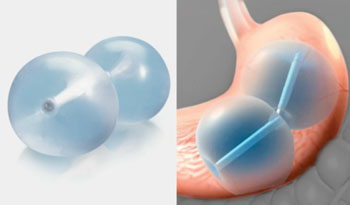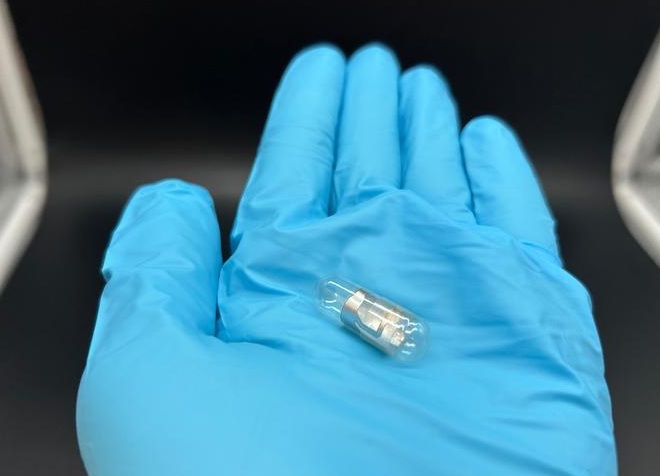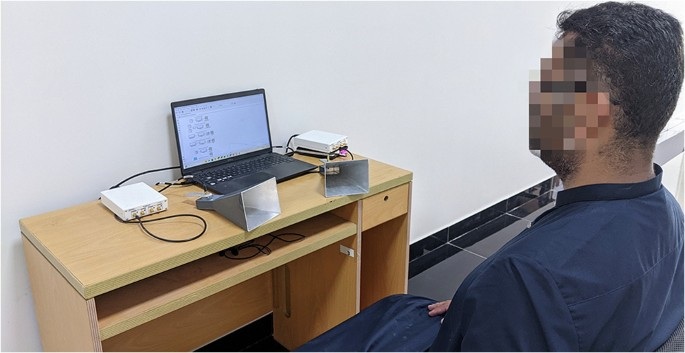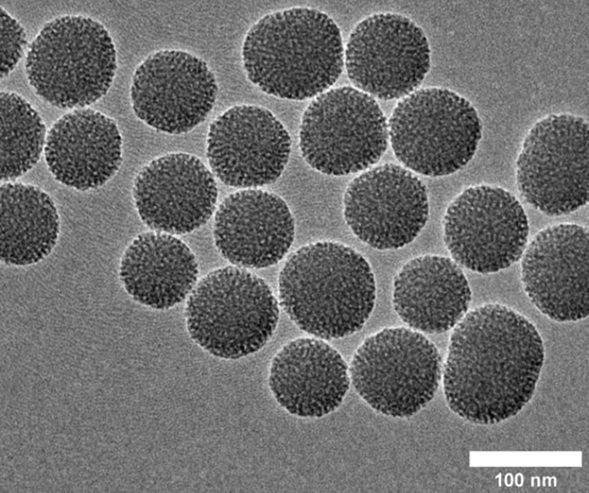Ingested Dual Balloon Encourages Weight Loss 
|
By HospiMedica International staff writers Posted on 12 Aug 2015 |

Image: The ReShape Integrated Dual Balloon System (Photo courtesy of ReShape Medical).
A novel non-surgical weight loss procedure aids people who either do not want or do not qualify for bariatric surgery.
The ReShape Integrated Dual Balloon System consists of two connected balloons that occupy space in the stomach, so that patients feel satiety with smaller portions of food. The system is inserted via an endoscopic procedure; once in place, the two balloons are inflated using saline, and remain in the stomach for six months to help reduce hunger. During these first six months, and for the six months after the balloons are removed, patients receive comprehensive counseling and support services that include frequent in-office coaching sessions.
The ReShape provides a personalized pathway broken down into three phases over the 12 months. The first phase involves a personalized evaluation and education session. The two balloons are then inserted in the stomach in a 20 minute procedure. This is followed by personalized coaching, with a focus on healthy eating, exercise, and lifestyle habits, to maximize treatment success. The balloons are removed at six months, with six monthly sessions continuing onwards thereafter to set goals and track progress.
To help patients monitor their progress, a ReShape Patient Portal provides weight logging, food logging, activity tracking, goal setting, articles and recipes, community forums, and other important reminders. The portal can be accessed from a smartphone or tablet, and the Fitbit (San Francisco, CA, USA) wireless scale and activity tracker can be integrated as well to integrate all weight loss data in one place.
The ReShape Integrated Dual Balloon System is a product of ReShape Medical (San Clemente, CA, USA), and has been approved by the US Food and Drug Administration (FDA). It is indicated for weight reduction when used in conjunction with diet and exercise, in obese patients with a body mass index (BMI) of 30–40 kg/m2, one or more obesity-related comorbidity conditions, and who have failed weight reduction with diet and exercise alone.
“Many Americans have struggled with a lack of effective weight loss options when their BMI is in the 30–40 range,” said John Morton, MD, MPH, president of the American Society for Metabolic and Bariatric Surgery (Gainesville, FL, USA). “Options like ReShape address a significant gap that exists between diet and exercise, weight loss medications and surgery, offering a minimally invasive, reversible option which we hope will promote long-term healthy habits.”
Related Links:
ReShape Medical
Fitbit
American Society for Metabolic and Bariatric Surgery
The ReShape Integrated Dual Balloon System consists of two connected balloons that occupy space in the stomach, so that patients feel satiety with smaller portions of food. The system is inserted via an endoscopic procedure; once in place, the two balloons are inflated using saline, and remain in the stomach for six months to help reduce hunger. During these first six months, and for the six months after the balloons are removed, patients receive comprehensive counseling and support services that include frequent in-office coaching sessions.
The ReShape provides a personalized pathway broken down into three phases over the 12 months. The first phase involves a personalized evaluation and education session. The two balloons are then inserted in the stomach in a 20 minute procedure. This is followed by personalized coaching, with a focus on healthy eating, exercise, and lifestyle habits, to maximize treatment success. The balloons are removed at six months, with six monthly sessions continuing onwards thereafter to set goals and track progress.
To help patients monitor their progress, a ReShape Patient Portal provides weight logging, food logging, activity tracking, goal setting, articles and recipes, community forums, and other important reminders. The portal can be accessed from a smartphone or tablet, and the Fitbit (San Francisco, CA, USA) wireless scale and activity tracker can be integrated as well to integrate all weight loss data in one place.
The ReShape Integrated Dual Balloon System is a product of ReShape Medical (San Clemente, CA, USA), and has been approved by the US Food and Drug Administration (FDA). It is indicated for weight reduction when used in conjunction with diet and exercise, in obese patients with a body mass index (BMI) of 30–40 kg/m2, one or more obesity-related comorbidity conditions, and who have failed weight reduction with diet and exercise alone.
“Many Americans have struggled with a lack of effective weight loss options when their BMI is in the 30–40 range,” said John Morton, MD, MPH, president of the American Society for Metabolic and Bariatric Surgery (Gainesville, FL, USA). “Options like ReShape address a significant gap that exists between diet and exercise, weight loss medications and surgery, offering a minimally invasive, reversible option which we hope will promote long-term healthy habits.”
Related Links:
ReShape Medical
Fitbit
American Society for Metabolic and Bariatric Surgery
Latest Surgical Techniques News
- Minimally Invasive Coronary Artery Bypass Method Offers Safer Alternative to Open-Heart Surgery
- Injectable Breast ‘Implant’ Offers Alternative to Traditional Surgeries
- AI Detects Stomach Cancer Risk from Upper Endoscopic Images
- NIR Light Enables Powering and Communicating with Implantable Medical Devices
- Simple Bypass Protocol Improves Outcomes in Chronic Cerebral Occlusion
- Implantable Absorbable Sensor Detects Life-Threatening Complications After Intestinal Surgery
- New Study Findings Enable Improved Ventilation During Complex Lung Surgery
- 3D-Printed Blood Vessel Scaffolds Could Transform Heart Bypass Surgeries
- Novel Imaging Technique Helps View Blood Perfusion During Esophageal Surgery
- Minimally Invasive Surgery Proven Safe and Effective for Complex ‘Whipple’ Procedure
- Catheter-Based Procedures Offer Less Invasive Option for Treatment of Valvular Disease
- Laparoscopic Surgery Improves Outcomes for Severe Newborn Liver Disease
- Novel Endoscopy Technique Provides Access to Deep Lung Tumors
- New Study Findings Could Halve Number of Stent Procedures
- Breakthrough Surgical Device Redefines Hip Arthroscopy
- Automated System Enables Real-Time "Molecular Pathology" During Cancer Surgery
Channels
Critical Care
view channel
Pill Reports from Stomach When It Has Been Swallowed
Failure to take medications on time is a major challenge in healthcare and contributes to hundreds of thousands of preventable deaths and billions of dollars in avoidable costs each year.... Read more
Wireless Sensing Technology Enables Touch-Free Diagnostics of Common Lung Diseases
Diagnosing lung diseases often requires physical contact, imaging scans, or specialized equipment, which can limit access in low-resource settings and increase infection risk during outbreaks.... Read more
Early Detection and Targeted Blood Purification Could Prevent Kidney Failure in ICU Patients
Acute kidney injury (AKI) is one of the most dangerous complications in intensive care units, affecting up to half of critically ill patients and sharply increasing mortality risk. A common but preventable... Read morePatient Care
view channel
Revolutionary Automatic IV-Line Flushing Device to Enhance Infusion Care
More than 80% of in-hospital patients receive intravenous (IV) therapy. Every dose of IV medicine delivered in a small volume (<250 mL) infusion bag should be followed by subsequent flushing to ensure... Read more
VR Training Tool Combats Contamination of Portable Medical Equipment
Healthcare-associated infections (HAIs) impact one in every 31 patients, cause nearly 100,000 deaths each year, and cost USD 28.4 billion in direct medical expenses. Notably, up to 75% of these infections... Read more
Portable Biosensor Platform to Reduce Hospital-Acquired Infections
Approximately 4 million patients in the European Union acquire healthcare-associated infections (HAIs) or nosocomial infections each year, with around 37,000 deaths directly resulting from these infections,... Read moreFirst-Of-Its-Kind Portable Germicidal Light Technology Disinfects High-Touch Clinical Surfaces in Seconds
Reducing healthcare-acquired infections (HAIs) remains a pressing issue within global healthcare systems. In the United States alone, 1.7 million patients contract HAIs annually, leading to approximately... Read moreHealth IT
view channel
EMR-Based Tool Predicts Graft Failure After Kidney Transplant
Kidney transplantation offers patients with end-stage kidney disease longer survival and better quality of life than dialysis, yet graft failure remains a major challenge. Although a successful transplant... Read more
Printable Molecule-Selective Nanoparticles Enable Mass Production of Wearable Biosensors
The future of medicine is likely to focus on the personalization of healthcare—understanding exactly what an individual requires and delivering the appropriate combination of nutrients, metabolites, and... Read moreBusiness
view channel
Philips and Masimo Partner to Advance Patient Monitoring Measurement Technologies
Royal Philips (Amsterdam, Netherlands) and Masimo (Irvine, California, USA) have renewed their multi-year strategic collaboration, combining Philips’ expertise in patient monitoring with Masimo’s noninvasive... Read more
B. Braun Acquires Digital Microsurgery Company True Digital Surgery
The high-end microsurgery market in neurosurgery, spine, and ENT is undergoing a significant transformation. Traditional analog microscopes are giving way to digital exoscopes, which provide improved visualization,... Read more
CMEF 2025 to Promote Holistic and High-Quality Development of Medical and Health Industry
The 92nd China International Medical Equipment Fair (CMEF 2025) Autumn Exhibition is scheduled to be held from September 26 to 29 at the China Import and Export Fair Complex (Canton Fair Complex) in Guangzhou.... Read more














